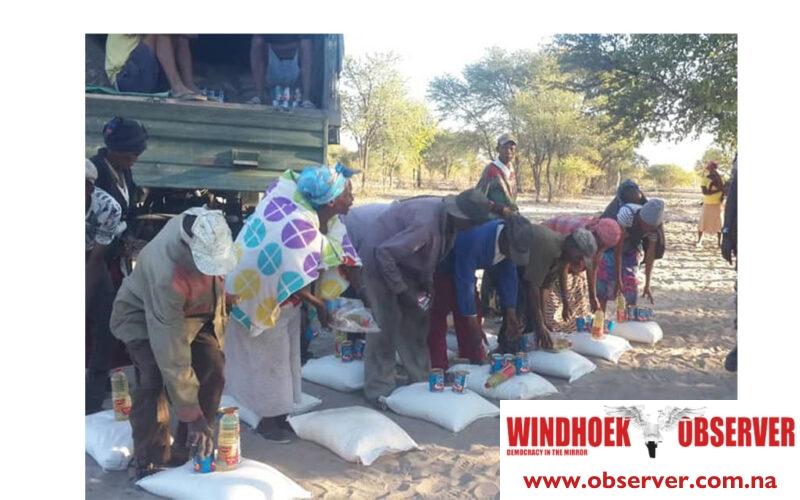Niël Terblanché
The Otjozondjupa Regional Council has expanded its drought relief aid criteria to include households in informal settlements, a move that will bring much-needed assistance to thousands of vulnerable families.
This change was announced by Marlene Mbakera, the chairperson of the Regional Council and the regional disaster risk management committee.
The amendment will see an additional 5 000 households in informal settlements across the region’s five major towns benefiting from the drought relief aid under the peri-urban programme.
This is in addition to the 15 960 registered households already receiving support, significantly increasing the overall demand for aid.
Mbakera expressed both satisfaction and frustration with the inclusion of informal settlements.
“While we are pleased that 5 000 additional households will receive aid, it falls short of our initial request for 10 000 households. We will continue to advocate for more eligible beneficiaries in informal areas to ensure comprehensive coverage,” she said.
To enhance the efficiency of aid distribution, Mbakera recommended merging the marginalised feeding programmeme under the Tsumkwe Constituency Office with the drought relief aid programme.
She stressed the importance of streamlining these efforts to prevent duplicate benefits for the same individuals and to ensure that resources are distributed more effectively.
“Combining these programmes will enable us to distribute drought relief aid more effectively and ensure that both peri-urban areas and marginalised communities receive the support they need,” Mbakera said.
Since October of the previous year, food distribution efforts in the region have been substantial.
Mbakera reports that over the past six months, they have distributed more than 205 000 bags of maize meal, cooking oil, 310 000 cans of fish, and packets of soya mince.
These efforts concluded this month, providing crucial support to many households affected by the drought.
She said that the Okakarara Constituency has the highest number of affected households, with 7 153 families in need of assistance.
This is followed by Tsumkwe, which has 4260 households requiring aid, and Okahandja, which has the least with 400 households.
The inclusion of informal settlements in the drought relief programme represents a significant step forward in addressing the needs of some of Namibia’s most vulnerable populations.
The Otjozondjupa Regional Council’s efforts to expand and streamline aid distribution are critical to mitigating the impact on affected communities.
Mbakera said that the council is committed to ensuring that all eligible households, including those in informal settlements, receive the assistance they need during these challenging times.




